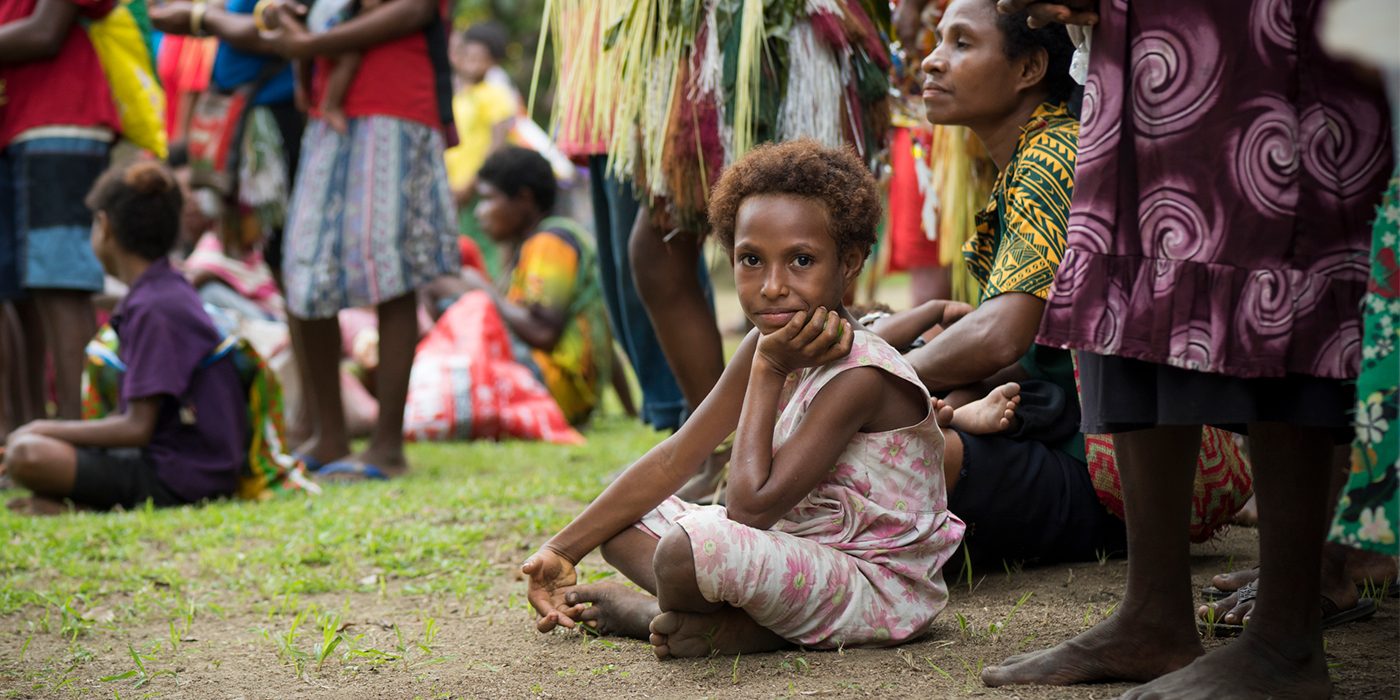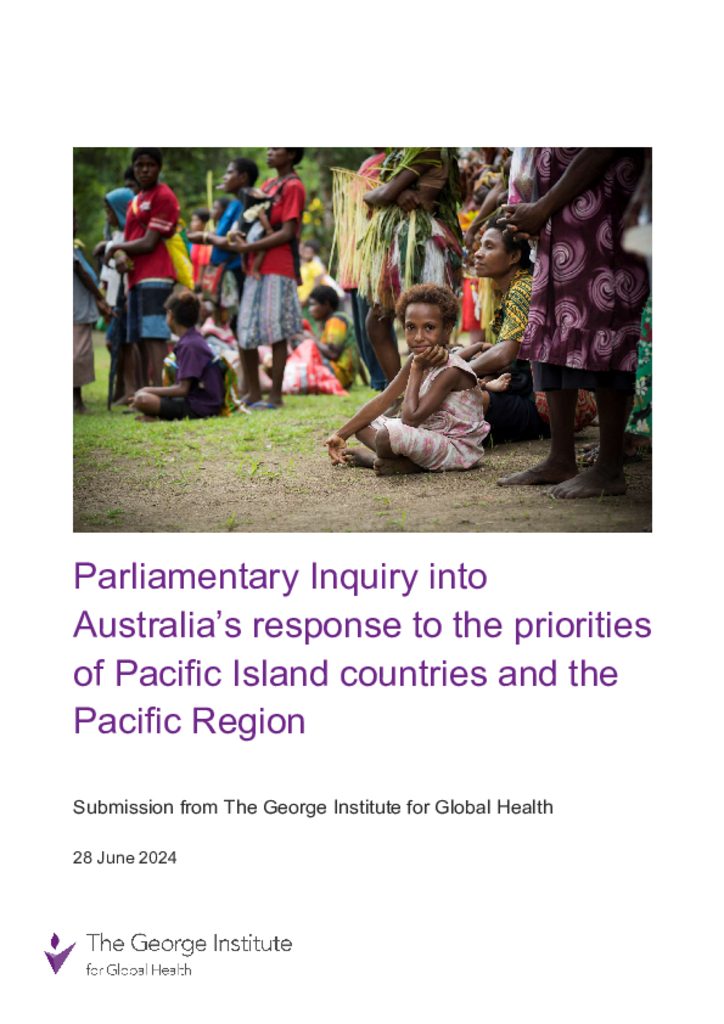
Submission to inquiry into Australia’s response to the priorities of Pacific Island countries and the Pacific region
The George Institute for Global Health is pleased to provide a submission in response to the Joint Standing Committee on Foreign Affairs, Defence and Trade, through the Foreign Affairs and Aid Subcommittee (the Committee) inquiry into Australia’s response to the priorities of Pacific Island countries and the Pacific region.
With input based on our current work with partners in the region, our response highlights key health priorities for Pacific Island countries and communities.
Our submission focuses on achievable approaches to lowering preventable illness.
People in the Pacific Island region are over represented in the global tally of deaths by preventable illness, non-communicable diseases (NCDs). The WHO Western Pacific Region, which includes 27 nations including the Pacific Island nations, recorded one quarter of total global deaths from NCDs. The four major NCDs–cardiovascular disease (CVD), cancers, chronic respiratory diseases, and diabetes–accounted for 12 million deaths in this region in 2019. Almost two thirds of deaths are linked to tobacco use, harmful use of alcohol, unhealthy diets, physical inactivity and air pollution.
High rates of NCDs have flow-on social and economic impacts. By lowering rates of NCDs, people will live more secure, more productive lives.
The summary of our recommendations is below. For full details please refer to the attachment.
Key recommendations
1. Leadership
We urge Australia to:
- Continue to advocate for the expansion of Universal Health Care, particularly in low- and middle-income countries, and the integration of the prevention and treatment of NCDs into primary care systems.
- Advocate for and build partnerships to increase the funding available for NCDs in low- and middle-income countries to accelerate progress on the Sustainable Development Goals.
- Continue to encourage capacity building of people and communities with lived experience in designing and implementing aid programs.
- Prioritise programs that reduce out-of-pocket expenses for people with NCDs, to maximise the social and economic co-benefits. Promote the expertise, knowledge and leadership of Aboriginal and Torres Strait
- Islander peoples and communities in connecting with Indigenous peoples and communities of the Pacific.
- Promote and support an integrated, life-course approach to addressing women’s health, embedding the prevention and management of NCDs into maternal and reproductive health programs to identify women at risk and reduce premature deaths.
- Prioritise programs that address commercial determinants of health, including the reducing tobacco use, alcohol consumption, unhealthy food consumption and inadequate physical activity.
2. Increased investment
Australia’s overseas development assistance is a vital tool to support countries in our region to achieve their development goals and contribute to the achievement of the global Sustainable Development Goals. We urge the Australian Government to:
- Increase its investment in health in Pacific Countries to prioritise programs that address NCDs and have social and economic co-benefits.
- Leverage ODA to drive greater private and philanthropic investment in NCDs in the region.
3. Share knowledge and expertise
Building knowledge and expertise within Pacific Island nations is essential to building a sustainable health workforce and developing local solutions to health and development challenges. We urge the Australian Government to:
- Expand its knowledge exchange and education programs.
- Participate in knowledge exchange between First Nations Australians and Indigenous peoples of the Pacific.
- Partner with Pacific nations to boost the number of trained health workers and strengthen local training institutions.






